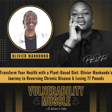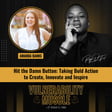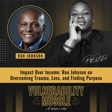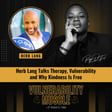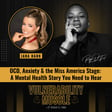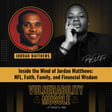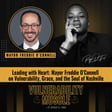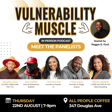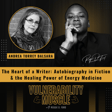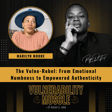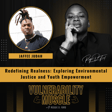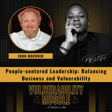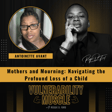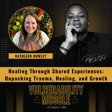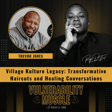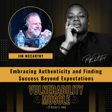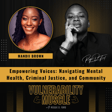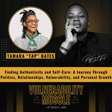
015 - Breaking the Cycle: Healing Trauma and Embracing Self-Validation with Priscilla Maria Gutierrez
In this powerful episode, Reggie D. Ford sits down with Priscilla Maria Gutierrez, a keynote speaker, certified trauma recovery coach, and trauma survivor, to discuss her journey of overcoming trauma and empowering others to do the same. As a sober, bisexual Latina woman with diagnosed mental illness, Priscilla candidly shares her experiences with borderline personality disorder and the importance of becoming cycle breakers. They dive deep into the impacts of generational trauma, societal norms around vulnerability, and the pervasive issue of sexual abuse, emphasizing the necessity of emotional processing, self-validation, and seeking help. Priscilla offers wisdom and encouragement by sharing her personal struggles and triumphs, highlighting the power of therapy and community support in the healing process. Together, they explore strategies for breaking harmful cycles, creating a path toward healing and authenticity, and addressing the profound impact of trauma on children.
Highlights:
⭐️ Priscilla's journey from studying sociology and law to becoming a trauma recovery coach.
⭐️ Priscilla's pivotal moments and the turning point at age 13 following her grandfather's death.
⭐️ Reggie shares his experience with social anxiety and perfectionist tendencies as coping mechanisms.
⭐️ The prevalence of sexual abuse among women and the societal factors that enable it.
⭐️ Reggie reflects on his own experiences of sexual abuse and societal responses to male victims.
⭐️ Discussion on breaking cycles of trauma and the importance of curiosity and introspection in challenging ingrained behaviors.
⭐️ Priscilla talks about the lack of validation in her life and how it affected her trust in her own judgment, especially in recognizing and processing abuse.
⭐️ Experiences with unhelpful therapists and the empowering act of firing one who invalidated her experiences.
⭐️ Priscilla describes what borderline personality disorder (BPD) looked like for her and the importance of self-awareness and boundaries.
⭐️ Embracing authenticity and the significant decision to pivot away from a law career for personal happiness.
⭐️ Advice for those facing barriers in trauma recovery and the importance of finding supportive, non-judgmental spaces for healing.
⭐️ Priscilla shares her past struggles with an eating disorder and alcoholism, emphasizing the importance of not giving up and how she transformed her life through hard work and therapy.
⭐️ Reggie opens up about his own challenges with emotional triggers and therapy, underlining that healing is a non-linear and ongoing process.
⭐️ A focus on encouraging black and brown men to embrace vulnerability despite societal pressures, and finding safe spaces to express their emotions.
___
📲 Connect with Priscilla
Instagram: @cyclebreakercoach
Website: priscillamaria.com
___
📲Connect with Reggie
IG - https://instagram.com/reggiedford
FB - https://facebook.com/reggiedford
LI - https://linkedin.com/in/reggiedford
X - https://twitter.com/reggiedford
YT - https://youtube.com/@reggiedford
Website - https://reggiedford.com/
Book - https://amzn.to/487OqJD
Podcast - https://reggiedford.com/vulnerabilitymuscle
Podcast’s IG - https://instagram.com/vulnerabilitymuscle
